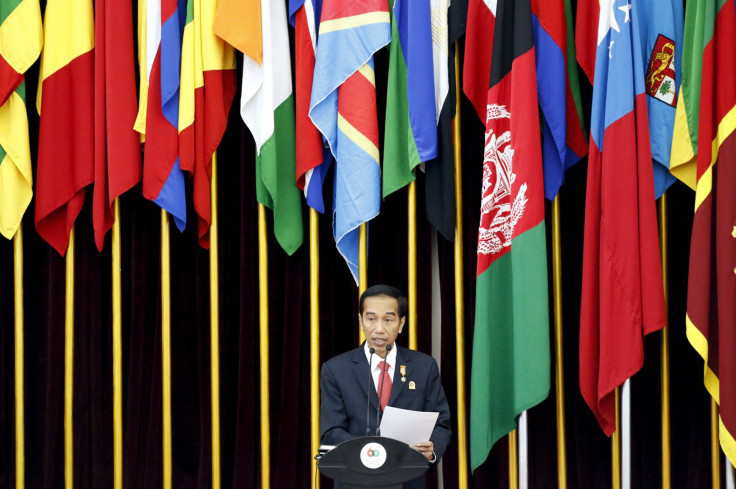Political Tensions Mount For Indonesia's Widodo As Economy Skids

JAKARTA (Reuters) - When Indonesian President Joko Widodo summoned his economy ministers to the palace this week to discuss growth slumping to its lowest level since 2009, they weren't the only ones to show up.
Dozens of senior figures from Widodo's political party arrived to make their views heard after data showed Southeast Asia's largest economy is smaller, in real terms, than when he took office in October.
"We're here to convey to the government that budget disbursement has been slow because ministers have not done their jobs," said party official Olly Dondokambey, after he and colleagues swept through the palace gates in a showy motorcade.
Widodo has vowed to lift economic growth to 7 percent on average over his five-year term, but critics and even some of his own advisers say the economy has actually gone into reverse because of incompetent ministers and bungling bureaucrats.
Slow progress boosting growth and sniping from within Widodo's party have left the former furniture salesman, who many people hoped would be able to spur a quick economic recovery, increasingly isolated.
"There is too much bad, bad policymaking that's happening right now," said one senior executive at multinational company in Jakarta. "It's a combination of people trying to learn on the job and not getting stuff done."
Slow Spending
A slump in commodity prices has added to the economic headwinds for the resource-rich economy.
Widodo did move quickly when global oil prices plunged by scrapping petrol subsidies and freeing up some $20 billion to spend on ports, roads and railways.
But the country's slow-moving bureaucracy has struggled to spend the cash, and many infrastructure projects, pivotal to boosting investment, are tied up in red tape. As of April 25, the government had spent only 7 trillion rupiah ($537.8 million), or 2 percent, of its 290 trillion rupiah budget for infrastructure spending.
Slow government spending was partly behind the slide in gross domestic product growth to 4.7 percent in the first quarter of this year.
Purbaya Yudhi Sadewa, the president's deputy chief of staff, says palace officials know the economy is slowing but feel they are being let down by a cabinet heavy on politicians and short on experienced technocrats.
"The president has led the way; he has cleared up here and there himself, rather than the government. So I hope that the ministers will follow. If I were the president, I'd command them to," he said.
Reshuffle Ahead
Widodo's Indonesian Democratic Party of Struggle (PDI-P) is taking advantage of his troubles to push for greater representation in the government. That could come, they hope, with a cabinet reshuffle.
One senior palace adviser, who asked not to be named, said Chief Economics Minister Sofyan Djalil and Finance Minister Bambang Brodjonegoro would probably survive a cabinet reshuffle because they are seen by investors as safe pairs of hands.
However mid-ranking ministers, such as those responsible for trade, industry, planning and public works, may be dropped.
Vice President Jusuf Kalla has repeatedly said a reshuffle could take place within weeks. Widodo has not commented on the matter, but with opinion polls showing public dismay as inflation nudges higher, a near-term reshuffle is widely expected.
In their defense, ministers say they have been hindered by a re-write of Widodo's budget.
"The new government had to start again with the revision of the state budget in February," Djalil told reporters.
He said problems with bureaucracy are being fixed and tenders have been made for all projects under the public-works ministry, which oversees the bulk of infrastructure spending.
Ministers say they are confident the economy is over the worst, though concede growth could be as low as 5.2 percent this year, below the official target of 5.7 percent.
Djalil insisted Widodo is not disappointed with the economics team, though "everybody needs to move faster".
If the economy doesn't recover soon then Widodo, the first Indonesian president from outside the political or military establishment, may find it hard to resist pressure to include more PDI-P in a new cabinet.
A reshuffle less than a year into his presidency could be seen as a failure to appoint competent officials in the first place, Jakarta-based Concord Consulting group wrote in a research note.
"There is also no guarantee that the replacements will fare any better, especially if the process of selecting new ministers is marred with political interests," it said.
© Copyright Thomson Reuters 2024. All rights reserved.





















